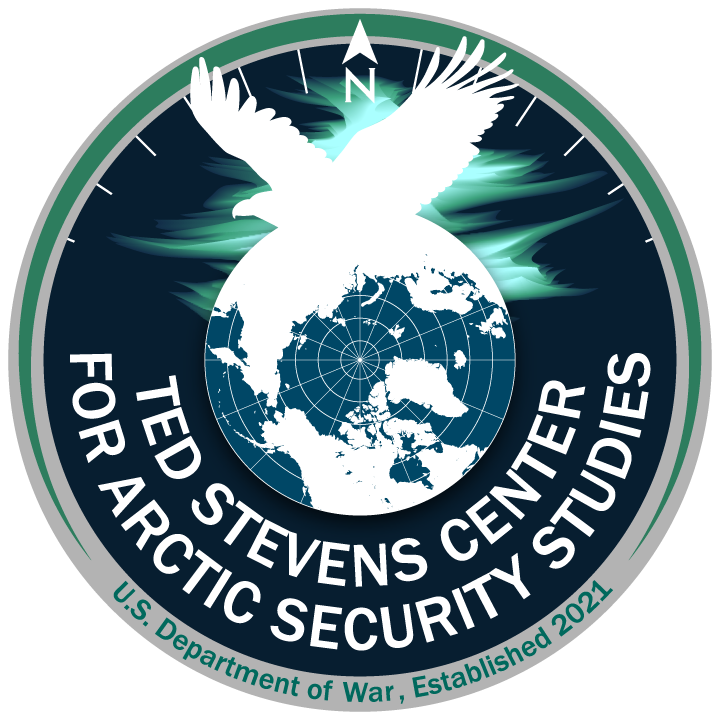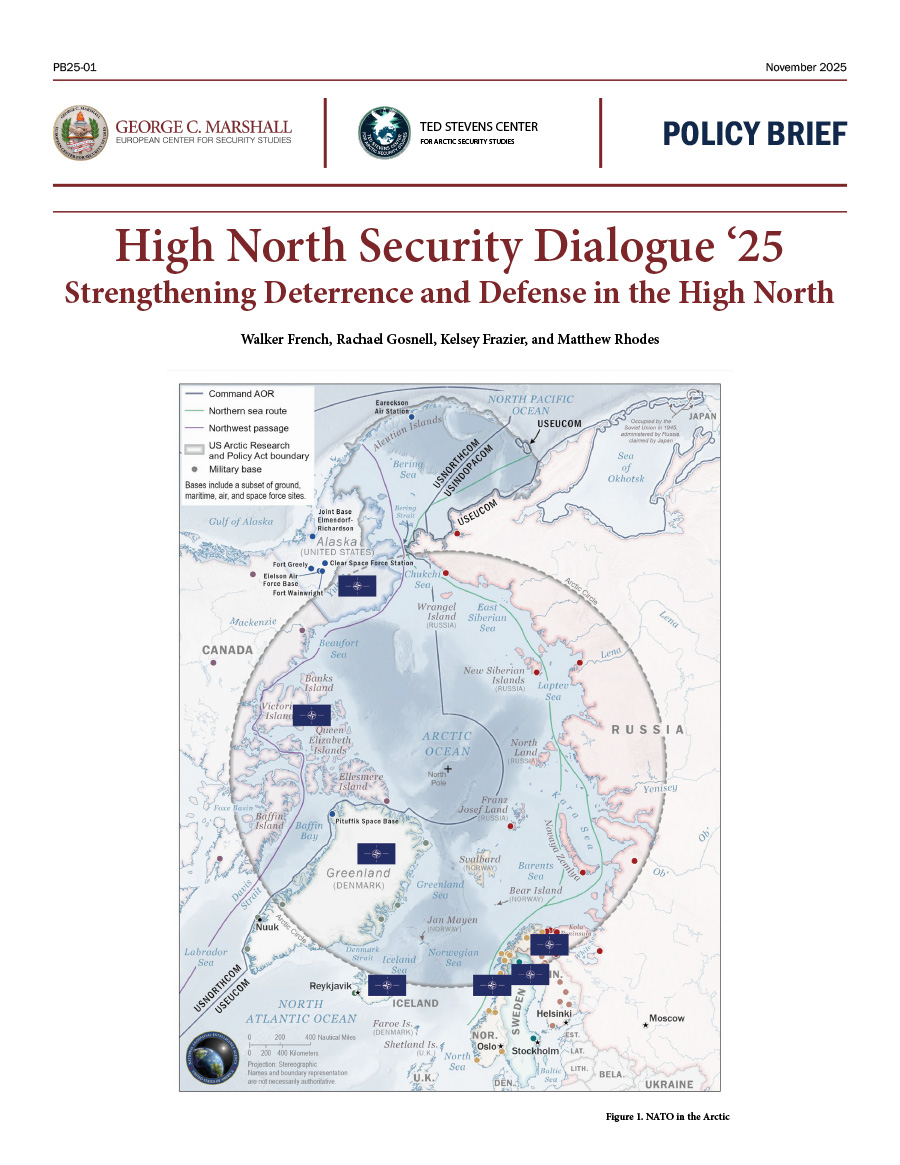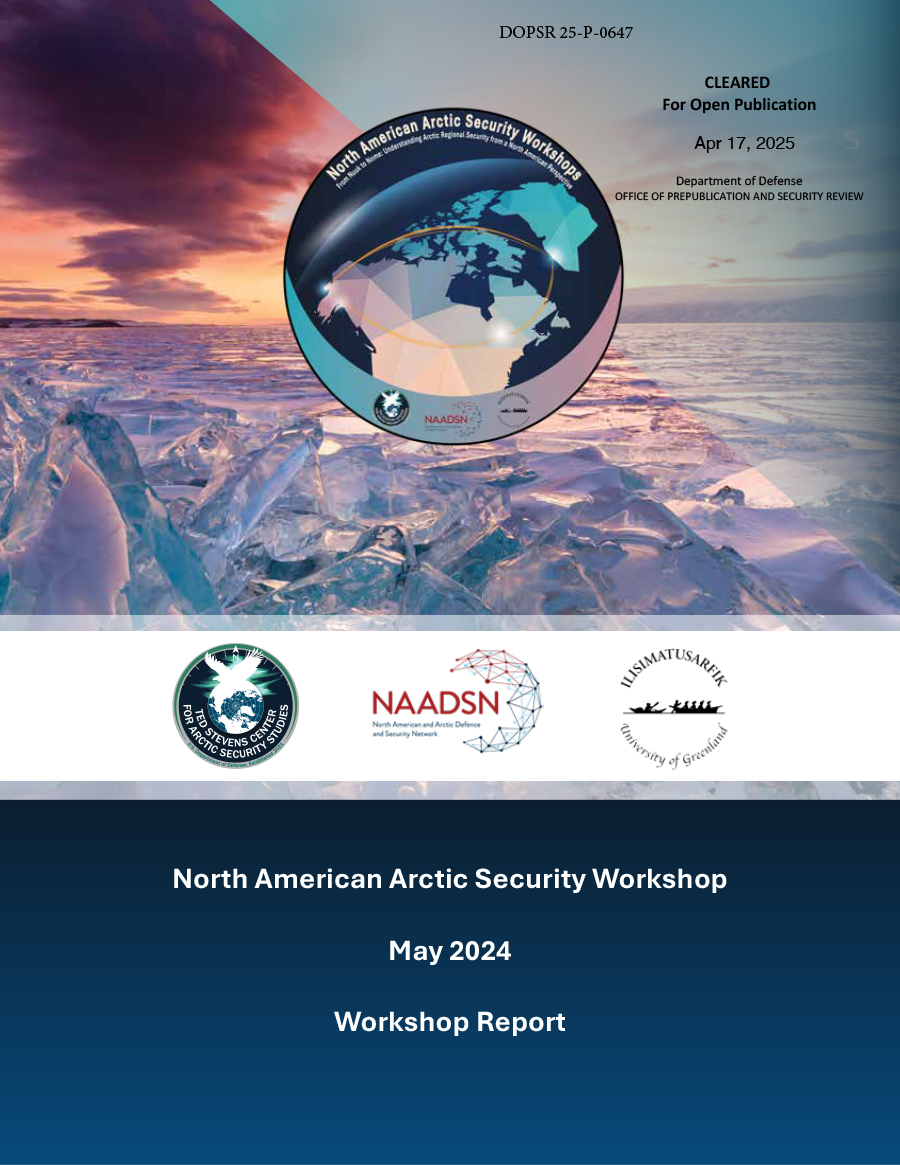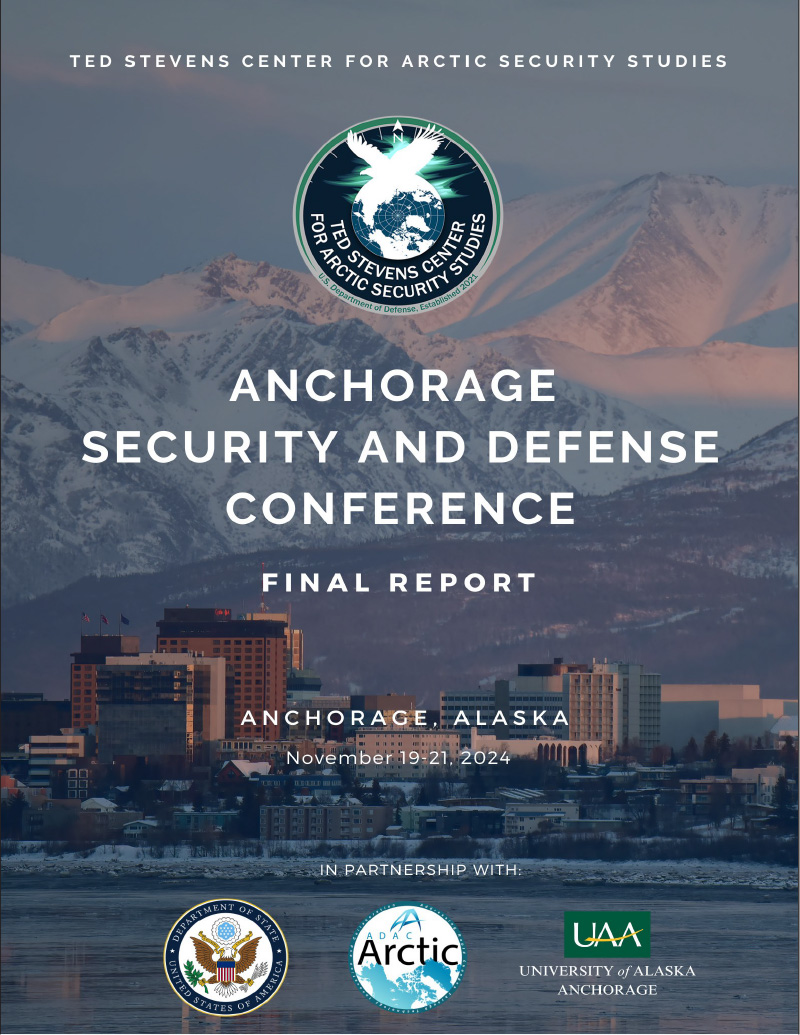Conference & Workshop Reports


High North Security Dialogue
Over the past decade, the Arctic has shifted from a peripheral concern to a central focus of global security. Although remote, the region increasingly experiences the consequences of international conflict. Achieving effective deterrence and defense in the High North requires Arctic states and the broader NATO alliance to coordinate their actions. NATO and its partners must develop tailored capabilities to support regional operations, expand domain awareness, enhance critical infrastructure, improve interoperability and readiness, and align defense industrial bases through public-private collaboration. Nations must strengthen military capacity and capabilities to operate in harsh Arctic conditions in order to maintain credible deterrence. In response to challenges in the Arctic, the George C. Marshall European Center for Security Studies and the Ted Stevens Center for Arctic Security Studies, cohosted the 2025 High North Security Dialogue (HNSD). This four day virtual event brought together more than sixty alumni, security practitioners, senior policymakers, diplomats, industry leaders, and academic experts from fifteen Arctic and Allied nations. The findings and recommendations in this report reflect the consensus views of HNSD speakers and participants, while also acknowledging differences of perspectives on specific issues.
ICE-PPR Navigation/Intelligence, Surveillance, and Reconnaissance Workshop Report
The Navigation, Intelligence, Surveillance, and Reconnaissance (Nav/ISR) Workshop held April 29 – May 1, 2025, on behalf of International Cooperative Engagement Program for Polar Research (ICE-PPR) convened scientists, research administrators, and military practitioners to advance collaboration in Arctic Nav/ISR research. This workshop was co-hosted by the Ted Stevens Center for Arctic Security Studies, the Cold Regions Research and Engineering Laboratory, and the Office of Naval Research on behalf of the ICE-PPR Situational Awareness Working Group. The three-day, international, virtual ICE-PPR Nav/ISR Workshop was held in lieu of an in-person workshop at CRREL to explore research and collaborative opportunities in polar navigation and ISR research. Presentations and participant reactions, questions, reflections, and responses were noted to compile this report.
Maritime Risk Symposium
The 16th annual Maritime Risk Symposium convened experts from across the military, government, industry, academia, and Indigenous leaders to confront the evolving realities of Arctic maritime security on May 13, 2025. Participants examined the region’s shifting geopolitical landscape, expanding operational complexity, and the urgent need for coordinated action. This report provides a detailed analysis of the event.
North American Arctic Security Workshop May 2024 Workshop Report
The North American Arctic Security Workshops (NAASW) are a collaborative initiative between the North American Arctic Defence and Security Network (NAADSN), the University of Greenland Ilisimatusarfik’s NasiKik Center (NasiKik), and the Ted Stevens Center for Arctic Security Studies (TSC). The series is designed to bring together stakeholders from across Canada, Greenland, the Kingdom of Denmark, and the United States to examine evolving defense and security challenges in the North American Arctic. The second workshop was held in Iqaluit, Nunavut, in May 2024. This reports provides a detailed analysis of the event.
Anchorage Security and Defense Conference
In November 2024, the Ted Stevens Center for Arctic Security Studies, in collaboration with ADAC- Arctic at the University of Alaska Anchorage, the Ted Stevens Foundation, and the U.S. Department of State, held the inaugural Anchorage Security and Defense Conference (ASDC). This conference provided a comprehensive exploration of evolving Arctic security challenges, all revolving around the theme The ‘Decisive’ 2020s in Allied North Perspective. Against the backdrop of geopolitical tensions, operational environment change, and increasing activity in the region, the Arctic is positioned as a critical focal point for global security discussions.
North Atlantic Arctic Crisis Workshop 2023 Report
North American Arctic Security Workshop: Spring 2023 Workshop Report
ALCOM Arctic Symposium 2022 Report
European Security Seminar North 2023
European Security Seminar – North 2022 High North, High Tension?







